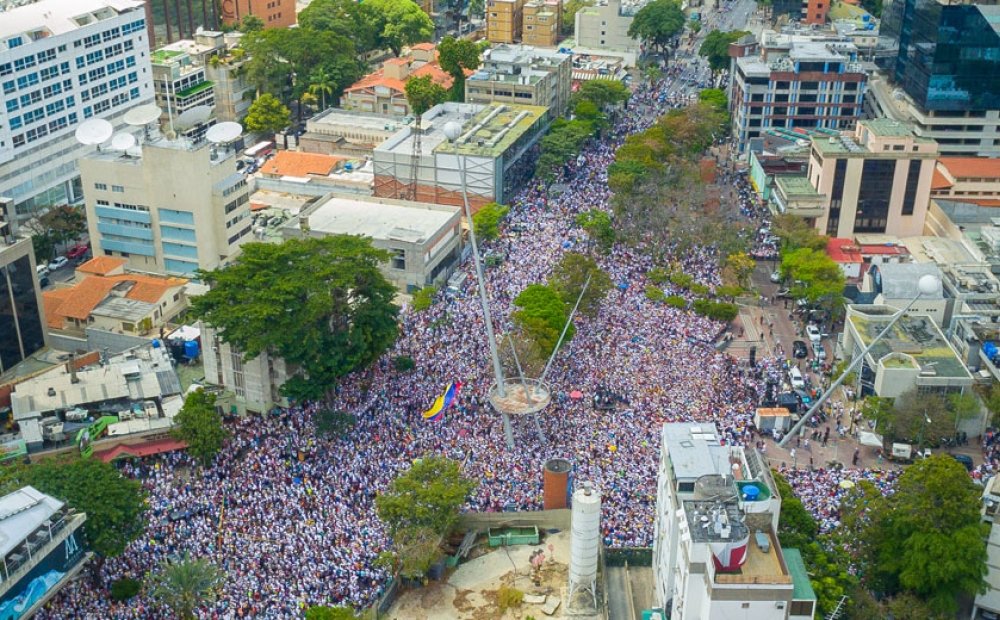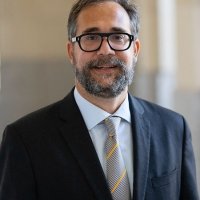Ground Truth Briefing | 2019: A Pivotal Year of Protest in Latin America

In 2019, the depth and ferocity of the rage that spilled into the streets in countries throughout the Americas—Bolivia, Chile, Colombia, Ecuador, Haiti, and Venezuela—took leaders and many long-time observers by surprise. The causes of this new wave of protests were diverse, defying easy generalizations. But common threads included economic stagnation that eroded standards of living, and growing dissatisfaction with the institutions and practices of representative democracy.
How have governments responded to the outpouring of discontent? Will dialogue and reforms be sufficient to calm the streets? What are the broader implications for political democracy?
In this Ground Truth Briefing, experts who contributed to The Wilson Quarterly’s recent issue on Latin America’s year of protests examined the specific grievances expressed by citizens in each nation, and the ways that governments, institutions, and civil society are responding to the unrest.
Selected Quotes
Rossana Castiglioni – Chile
"Regarding the [Constitutional] plebiscite, things are far from solved. Support for the new constitution has been decreasing, although the most likely scenario by far is that it will pass. Support for a mixed constitutional convention has been increasing even if Chileans vote for a new constitution, changes might be much more moderate than protestors are expecting."
"One aspect that I think is particularly alarming…is that polarization levels seem to be increasing. Since protests do not have a leader, there is no political party behind the protests—there are no signs of political parties when there are demonstrations—and there is not a common purpose…things can get very easily out of hand."
Jim Shultz – Bolivia
"[T]he undoing of Morales really can be traced to a couple of things…. When Evo announced that he wanted to run for a fourth term, I think that is when a lot of people began to smell a drift toward authoritarianism that made people very nervous…Evo’s running for election for a fourth term was based on this really quite bogus Supreme Court decision, his handpicked Supreme Court, that even though the constitution said he couldn’t run again and even though a popular referendum that he had put on the ballot had people voting by a slim margin to not let him run for a fourth term, the Supreme Court said, “…his human right to run for a fourth term is more powerful than he constitution.”
"[A]n interim government has one job and that’s to deliver clean elections and then go home and that’s obviously not the way [Jeanine Áñez] is handling it…you once again have the people looking at a government that simultaneously controls the mechanics of the election and very much has a stake in the outcome."
Michael Penfold – Venezuela
"Venezuela has experienced three different waves of social protest in the last five years since Maduro came to power in 2013…[U]nlike many other waves in Latin America of social protest, each one of these protests has been followed by a further deterioration of human rights, of civil and political rights, and even democratic breakdown in Venezuela. So unlike other countries where social protests have been followed by concession and openings, the different waves in Venezuela have been followed by a closing of the regime."
"The demand for political change in Venezuela is extremely high. Over eighty-two percent of the people want political change in Venezuela. But over thirty-five percent of the people believe that that’s not going to happen…the opposition has failed to adapt [its] discourse and [its] strategy to a changing social and economic environment. They’re very much focused on restoring democracy and restoring legitimacy, but there’s still very little social discourse in terms of how they’re going to be able to connect with people’s demands and reconstruct public services in Venezuela."
Catalina Lobo-Guerrero – Colombia
"The government of Iván Duque called for a national conversation. He set up some discussion tables—it’s not really a negotiation, it’s more of a discussion [around] the issues that people had been demanding….[T]he attitude now of most Colombians toward protests is that if people are blocking the streets or if they are engaging in…vandalism acts, they will not support these protests."
"So who is in the opposition right now? The unions also lost all the support of the people. People don’t really feel represented by the people who were calling for these protests. Other political leaders, for example, Gustavo Petro, who was the one competing against President Iván Duque…is perceived as a dangerous kind of populist, toxic leader."
"Other political leaders that have been rising – for example Claudia López, the Mayor of Bogotá, [is] having her honeymoon period…Her approval ratings are close to seventy percent. But it’s still too early to see if she is the one who could represent some of the demands and some of the ideas that helped mobilize the protests in November."
"Colombia seems to be torn between its past and its future…in rural areas still – we’re still living in an armed conflict situation….the discussions – the national conversations – are very different when you’re in the periphery or if you’re in…the main cities."
Speakers

Professor of Political Science, Instituto de Estudios Superiores de Administración (IESA) Business and Public Policy School, Venezuela
Introduction
Moderator

Hosted By

Latin America Program
The Wilson Center’s prestigious Latin America Program provides non-partisan expertise to a broad community of decision makers in the United States and Latin America on critical policy issues facing the Hemisphere. The Program provides insightful and actionable research for policymakers, private sector leaders, journalists, and public intellectuals in the United States and Latin America. To bridge the gap between scholarship and policy action, it fosters new inquiry, sponsors high-level public and private meetings among multiple stakeholders, and explores policy options to improve outcomes for citizens throughout the Americas. Drawing on the Wilson Center’s strength as the nation’s key non-partisan policy forum, the Program serves as a trusted source of analysis and a vital point of contact between the worlds of scholarship and action. Read more
